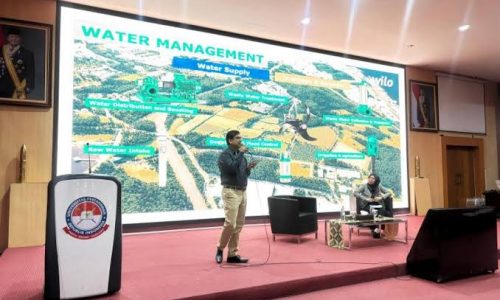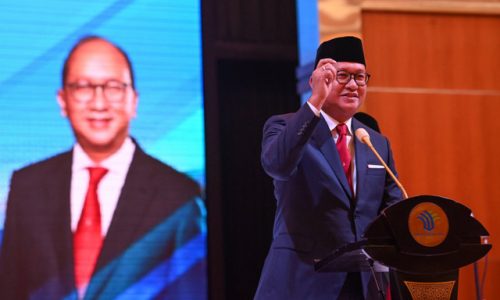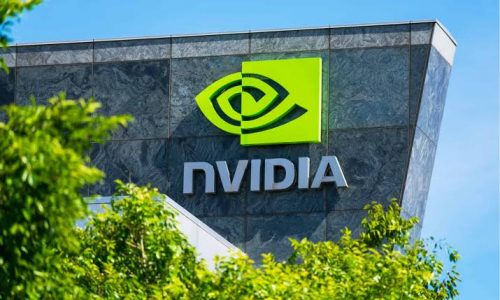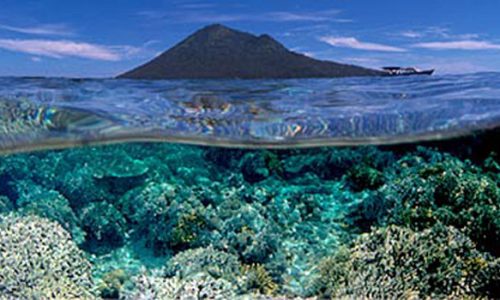As the current biggest Korean boy band in the world, BTS has been proving its status by breaking barriers and records – in or outside music industry – around the world.
In the music industry, they grabbed number one spots in music charts and have won many awards. Outside the music industry, they have a global campaign called “Love Yourself” to fight against violence and give their speech in the United Nation as UNICEF’s global ambassadors.
BTS’ contribution to South Korea so far
“Bangtan economy” is a nickname for BTS as a credit for contributing to South Korea’s culture, economy, and industry due to their popularity.
The economic effect
According to the Hyundai Research Institute in 2019, the overall BTS effect in the economy was 5.56 trillion won per year in South Korea (US$ 4.9 billion). The institute predicted that BTS would create a total of 56 trillion won over 10 years from 2014 to 2023. A total of 7,928 more jobs were also estimated to be created by Dynamite’s entry at No. 1 in the Hot 100 chart in 2020 with 1.23 trillion won in production sector and 480 billion won were added to the value. According to the Bank of Korea Economic Statistics System, South Korea’s BOP (balance of payments) for music and entertainment in the first quarter of 2019 was US$ 114.7 million.
The tourism effect
A survey by the Korea Tourism Organization revealed the top five BTS-related locations. The Seoul Metropolitan Government also credited BTS with assisting in the recovery of Seoul’s tourism industry.
The consumer goods exports effect
BTS has an annual influence on consumer goods such as clothing (US$ 2.026 billion), cosmetics (US$ 2.8 billion), and food (US$ 3.966 billion) in 2019. They also bring 600 billion won (US$ 504 million) profit Hyundai carmaker as the company’s global ambassadors.
BTS enlistment worry stakeholders
The day BTS announced their enlistment plan, the stock price of BigHit Music’s parent company, HYBE, plunged several percent. The enlistment created a worry among stakeholders and became a major debate in South Korea between society and the lawmakers.
In an interview with Reuters, Shinhan Investment Corp. analyst Ji In-hae said that “Sales from BTS will not disappear. Members’ individual activities, the release of content and photobooks already filmed and older album sales will be highly profitable. However, with the biggest moneymaker absent, the key [for HYBE] will be how much sales are made from new businesses.”
How Indonesia should learn from South Korean soft ‘economy’ power
It is not accurate to say that Indonesia cannot do “soft diplomacy” like South Korea. Every country has its own unique set of resources and priorities that shape its approach to international relations, and it is not fair to compare one country’s diplomacy to another’s in an absolute sense. That being said, it is true that South Korea has been particularly successful in using “soft power” as a tool of diplomacy. South Korea has been able to effectively use its popular culture, including music, television shows, and movies, as a way to build connections with other countries and to promote a positive image of itself internationally.
Indonesia, also has its own unique cultural assets that it can use to pursue soft diplomacy. For example, Indonesian cuisine, traditional music and dance, and natural beauty are all assets that could potentially be leveraged in diplomatic efforts. However, it is ultimately up to the government and other organizations within the country to decide how to best utilize these assets and what approach to take in their international relations. There are some lessons from South Korean that Indonesia can apply when it comes to its soft power diplomacy:
- Consider to use their famous group band or an actress to be an influencer to speak up about some issues that happening in Indonesia;
- Creative directors in Indonesia can actually create some spirits of the younger generation through dance and music to promote Indonesia;
- Between private companies & government should work together in order to make the Indonesia’s soft power diplomacy successful.
Cultural cooperation between both countries is profitable for South Korea
There are many areas of cultural cooperation between Indonesia and South Korea. Here are a few examples:
Art and music: Indonesia and South Korea have a long history of cultural exchange in the arts and music. South Korean pop culture, in particular, has gained a large following in Indonesia, and many Indonesian artists have gained popularity in South Korea.
Film and television: Indonesia and South Korea have also cooperated in the film and television industries. For example, some South Korean films have been dubbed into Indonesian and have been screened in Indonesian theaters.
Education: Indonesia and South Korea have also worked together in the field of education. Many Indonesian students study abroad in South Korea, and South Korean universities have established partnerships with Indonesian universities.
Food: Indonesian and South Korean cuisine have both gained popularity around the world, and there has been cultural exchange in the culinary arts between the two countries.









